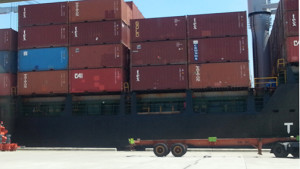
The policy could mean some containers may miss their loading call, potentially further aggravating congestion at the ports.
The staff of the BOC-Customs Container Control Division (CCCD) has been instructed to enforce immediately the memorandum order dated August 4 signed by CCCD chief Fidel Villanueva IV and Export Division chief Joji Dondina, and noted by MICP district collector Elmir Dela Cruz.
Empty containers, on the other hand, must be cleared by CCCD before they can enter the container yard, the order said.
The new ruling will affect mostly less-than-container-load (LCL) shipments, according to Leo Morada, chief executive officer of BOC-accredited value-added service provider Cargo Data Exchange Corp.
Morada told PortCalls LCL shipments will be “adversely affected since time is needed to complete stuffing into one container (the) export shipments from several exporters.”
On the other hand, full-container-load shipments originating from exporters’ premises and bound directly for the port will have no problem, he added.
PortCalls sources from the forwarding community said they have no issue with the order except they would have wanted to have been given time to inform their clients. They also would have appreciated being consulted beforehand since the policy affects operations of many stakeholders.
It has been a long-time practice for export declarations to be submitted only after laden containers are sent to the ports. This is because some LCL exporters wait at the very last minute to send their shipments for stuffing at offdock yards. After the containers are closed, only then will the export declarations be prepared.
A PortCalls source said some exporters cannot be blamed for last-minute delivery of shipments because their raw materials in the first place came to them late — another consequence of port congestion.
The Association of International Shipping Lines and Philippine International Seafreight Forwarders Association requested a meeting next week with MICP collector Dela Cruz to discuss the BOC order.
Export declarations are electronically lodged in BOC’s electronic-to-mobile (e2m) system through VASPs, covered under Customs Memorandum Order No. 54-2010 and CMO No. 7-2012.
The export declaration single administrative document (ED-SAD), which is the electronic representation of an export declaration, is lodged in the e2m’s Automated Export Declaration System and submitted to the CCCD to match with the export declaration.
If the export declaration and the ED-SAD match, the CCCD officer will clear the cargo for loading. – Roumina Pablo









